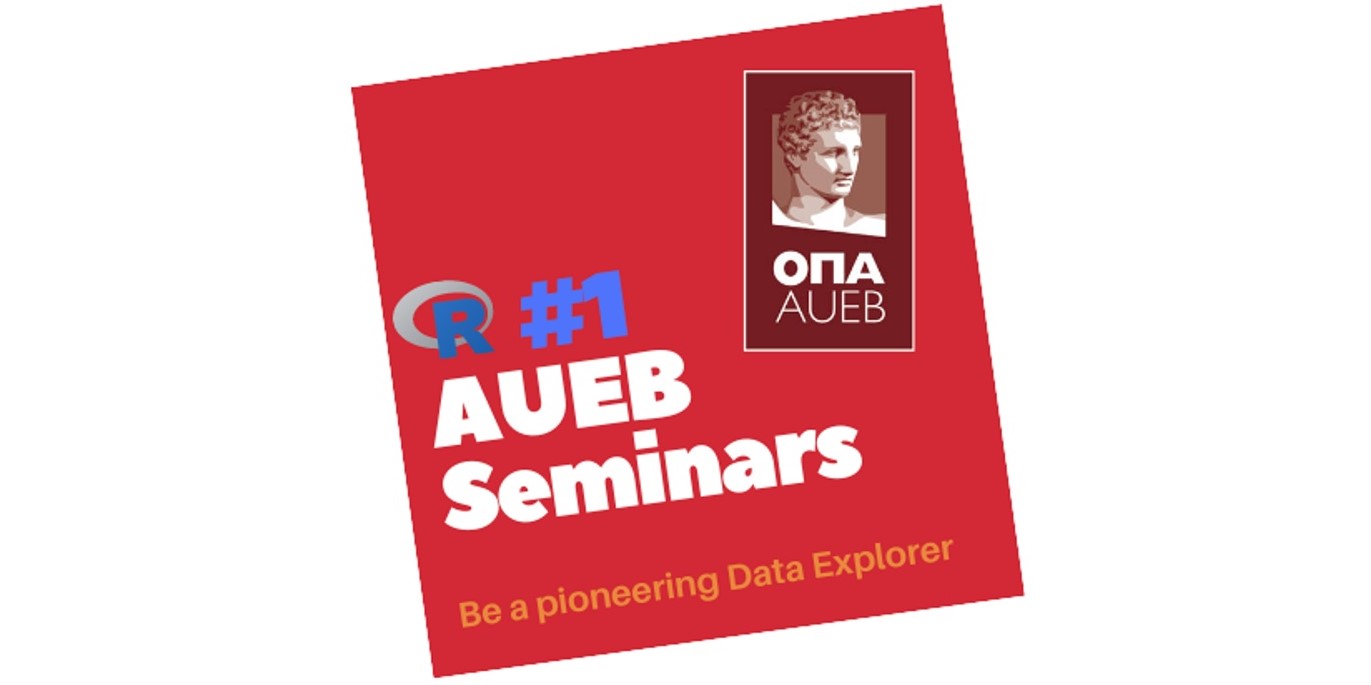- PROGRAMS
- R1: Introduction to R
R1: Introduction to R
The R statistical language is a valuable tool for data management and mainly for statistical analysis that includes cutting-edge modern methodologies. The fact that R is an open source language where anyone can contribute by developing libraries that implement statistical methodologies has led to an almost frenetic pace of development. At the same time R has high quality graphics making it an important data visualization tool.
Thus, arises the need for education and training of a large number of students and graduates in this language who until now relied on the use of closed-type commercial statistical software. At the same time, the development of methodologies for the analysis of large volumes of data as well as developments in both statistical science and other related sciences lead to the need for training in R and its capabilities.
The purpose of this course is to educate students, graduates and executives in the basic concepts of R but at the same time to offer and teach important concepts of statistics in a correct and systematic way using R as a tool.
In this context, this course offers an introduction to R, a quick tutorial on basic statistical concepts and methodologies, and then offers ways to use R for statistical data analysis, always keeping in mind the applications and modern data management problems that arise in practice.
As part of the seminars, there will be 5 three-hour lectures with theory and 5 three-hour workshops where small exercises will be given for the home (homework) with the aim of both getting familiar with R and solving practical problems with real data. In this part emphasis will be placed on the basic principles of programming and writing programs and functions.
- use the R language.
- read data and manage it using R
- to be able to perform basic data manipulation.
- be able to create basic scripts and functions.
Includes training hours with classroom, laboratory, or remote (via live streaming) instruction along with any breaks.
Additional hours of work are included (indicative) and may include individual study, writing assignments, participation in field visits, participation in exams, etc.
The total hours include hours of synchronous and asynchronous training, as well as additional hours of employment.
Weeks in which activities of any kind are planned are included.
- Current students in statistics or related departments who want to learn the R language that is not necessarily taught beyond the Statistics department.
- Graduates of Statistics departments from previous years where R was not widespread and not taught.
- Graduates of Statistics departments from recent years who were either not taught R or would like to delve deeper.
- Graduates of Mathematics departments who, while they have been taught theoretical courses, have little familiarity with the use of statistical programs such as R.
- People who already work and need to analyze data and use R.
- Researchers from various other fields who need both statistical methods and the use of R for their research.
- have a prior knowledge of statistics (have been successfully taught, for example, a course).
- have knowledge of using computers.
- have sufficient knowledge of English (Lower level and above).
CONTACT
45, Kefallinias Str., 11257, Athens
-
dummy secretariat@diaviou.aueb.gr
-
dummy+30 210 8203 913
For the in Class programs:
-
dummydiazosis@diaviou.aueb.gr
-
dummy+30 210 8203 916, 912, 914
For the eLearning Programs:
-
dummyelearning@diaviou.aueb.gr
-
dummy+30 210 8203 753





